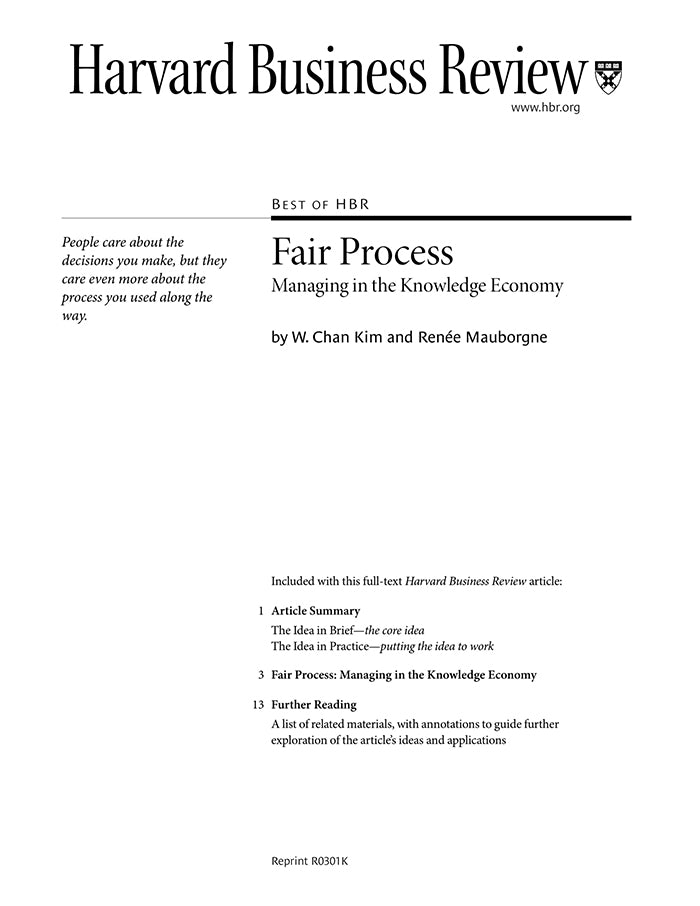Fair Process: Managing in the Knowledge Economy (HBR Classic)
受取状況を読み込めませんでした
This article includes a one-page preview that quickly summarizes the key ideas and provides an overview of how the concepts work in practice along with suggestions for further reading. Unlike the traditional factors of production--land, labor, and capital--knowledge is a resource that can't be forced out of people. But creating and sharing knowledge is essential to fostering innovation, and it is the key challenge of the knowledge-based economy. To create a climate in which employees volunteer their creativity and expertise, managers need to look beyond the traditional tools at their disposal. They need to build trust. The authors studied the links among trust, idea sharing, and corporate performance for more than a decade. They explored why managers of local subsidiaries so often fail to share information with executives at headquarters, and they studied the dynamics of idea sharing in product development teams, joint ventures, supplier partnerships, and corporate transformations. They offer an explanation for why people resist change even when it would benefit them directly. In every case, the decisive factor is what the authors call "fair process"--fairness in the way that a company makes and executes decisions. The elements of fair process are simple: Engage people in decisions that directly affect them, explain why decisions are made the way they are, and clarify what will be expected of them after the changes are made.
【書誌情報】
ページ数:20ページ
サイズ:A4
商品番号:HBSP-R0301K
発行日:2003/1/1
登録日:2012/3/28


